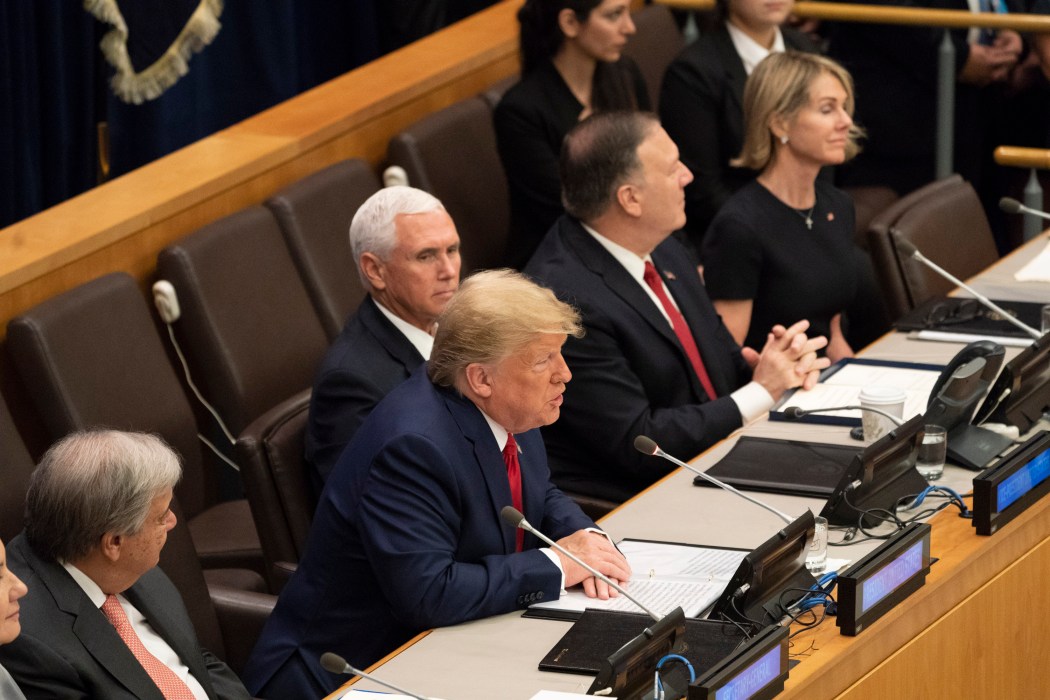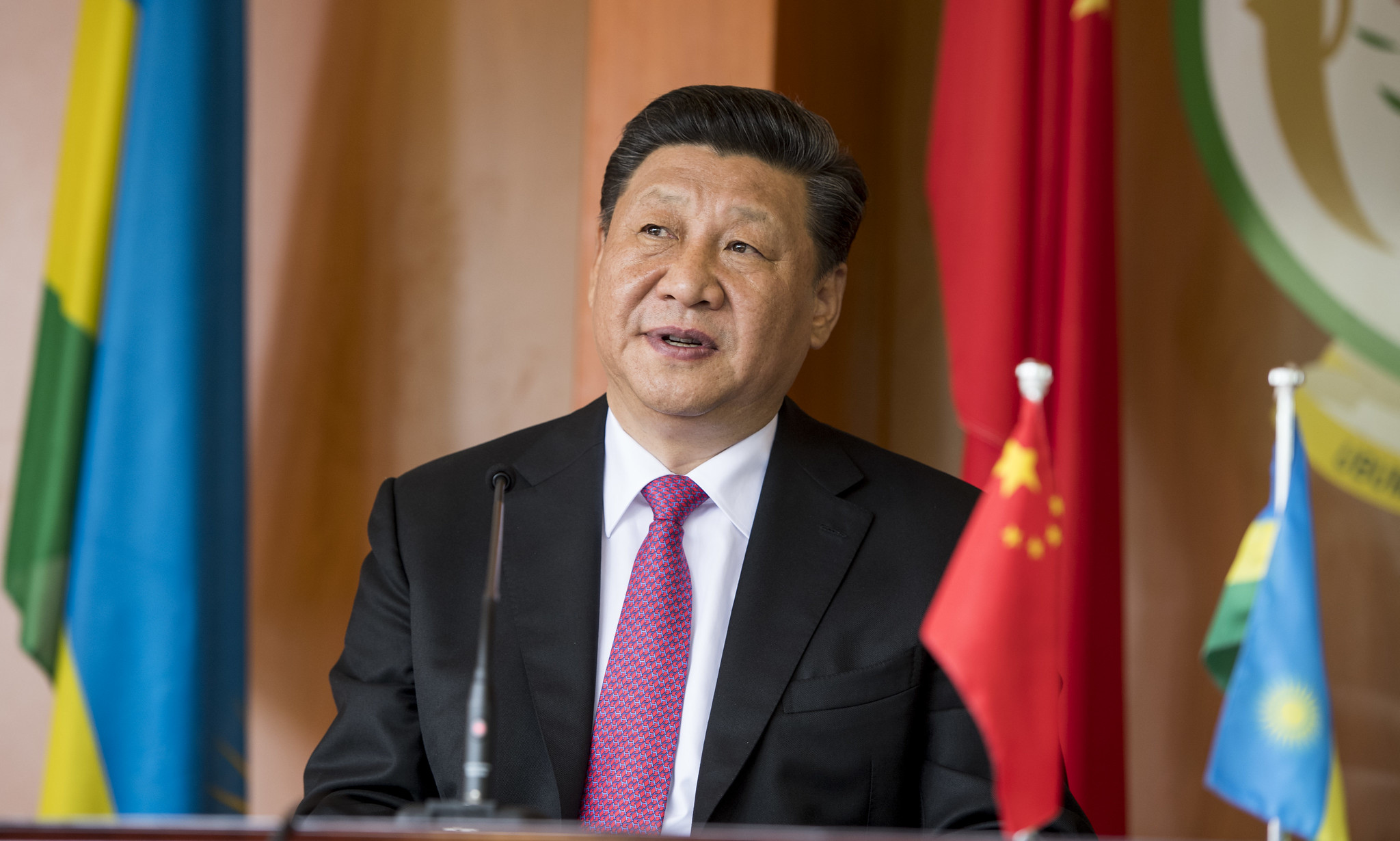The Electoral College has finally confirmed Joe Biden as next president of the United States after an election in which Donald Trump won the support of numerous Asian netizens – more united in their backing than the Republican party itself.
In academic circles, virulent opposition to everything Trump does has become mainstream but like him or loathe him, his diplomatic achievements have been unreasonably underestimated. He is the first US president to fundamentally change the rules of international engagement since Nixon’s visit to China, or even since the end of World War II.

There are two different elements to “Trumpism”: the theoretical basis, which is shaped by his team, such as Pence, Pompeo, Pottinger, Navarro, Miles Yu and so on; and the programme of action, an expedient used by Trump to make deals unpredictably.
In four years, Trump has reversed decades of US diplomatic normality and made Nixon and Kissinger’s strategies look obsolete. A new era has begun and the next president is very unlikely to emerge from the shadow of Trumpism.
Liberal academics see the “democratic peace theory” and the “theory of peaceful evolution” as the key to the defeat of the Nazis and the Soviet Union, and believe that following this beaten track is enough to overcome a rising China. Even traditional politicians and scholars, who have reservations about these theories, usually stay within this framework.
Trump came up with a new theoretical structure: only “comprehensive national power as a whole” can counter China’s “national system.” In a democracy, domestic interest groups must complement each other and any single front is no match for China’s national system.
When Biden tries to restrict competition with China to a few particular sectors, the resistance he faces will be greater.

Globalisation assumes a system of mutually beneficial interdependence but China’s “sharp power” model ignores this assumption. As long as Beijing is willing to take part in shaping international standards and utilise a group of developing countries as leverage, it can define new international norms or even emerge as a world leader.
Therefore, China’s boycott of foreign goods for political reasons is not considered a violation of free trade, whereas the US decision to increase tariffs is a violation. While US social media operating under US standards in China are seen as interfering in its internal affairs, the blocking of Chinese social media by the US is seen as undermining free trade principles.
In this way, offending China is unprofitable and critics of the United States can take the moral high ground.
Trump’s diplomacy, which is premised on the principle of reciprocity as a prerequisite for interdependence, is correct even if it goes against dogmatic liberalism.

The post-war international system was mainly designed by the United States but many advocates of global governance overlook the fact that international institutions are cumbersome. When the United Nations was established, with its founding members including British-ruled India, the insular government of the Philippine Islands, Soviet-ruled Ukraine and so on, it was not a club of sovereign states. And the veto power of the five permanent UN Security Council member is clearly a sign of a two-tier membership system.
However, after China joined the international system, it immediately twisted its “Five Principles of Peaceful Coexistence” into defending the “one country, one vote system” at international level and striving for “democratic reform”.
Beijing’s Third World allies can play a disproportionate role in global institutions. Trump had an aversion to international organisations, withdrawing from the World Health Organization and the Paris Agreement on climate change and even quitting the Trans-Pacific Partnership on free trade which the United States helped to create.
These does not mean that he totally denies the importance of multilateralism but this is effective only in reasonable and legitimate international organisations. By the time Biden realises that his voice is being drowned out by China, he will still have to establish new international organisations and systems.
Trump’s replacement of the decades-old “Asia-Pacific Strategy” with the “Indo-Pacific Strategy” is the biggest change in US postwar geopolitics. In an Asia-Pacific strategy, ASEAN is the border and China will gradually become the dominant force. But a broader Indo-Pacific strategy can encircle China, reducing the need of small ASEAN countries to rely on it and offsetting the “Belt and Road” drive.
Complementing this is the US “four-nation alliance” involving Japan, Australia and India. In an internet-era economy, the demographic dividend is so important that only India’s population is strong enough to compete with China’s, and soon India will become the world’s third-largest economy.
In terms of technology and resources, Japan and Australia are able to support India. India’s global soft power competes with China’s, and because the British empire exported Indians everywhere, it became a new empire that is capable of becoming China’s all-round rival.

Similar strategic ideas were hatched before Trump took office but only he could turn it into a policy.
Trump’s brinksmanship and no-strings-attached approach to diplomatic negotiations are taboo for traditional diplomats but quite acceptable from a businessman’s point of view. One of the reasons Trump can reconcile Israel with the United Arab Emirates, Bahrain and even Sudan, which has been removed from the list of countries supporting terrorism, is to put the Palestinian issue aside. The Arab countries have long wanted to do so but were constrained by dogmatism.
Another example is the groundbreaking relationship between Trump and Kim Jong-un. North Korea has in recent years fired no missile across Japan’s airspace and security in Northeast Asia is more under control than when President Obama left office. The mainstream Democratic Party could never have achieved such deals. The price of such tactics is to pass over vulnerable groups such as the Palestinians and the Kurds. But strong states in the region, such as Israel and Turkey, are still subject to US constraints.
All these examples show that the commercial approach to international mediation has succeeded in easing conflicts. Trump probably deserves a Nobel Peace Prize more than Obama did.

Trump’s diplomacy is often criticised for alienating traditional allies and weaking US leadership in multilateral bodies, allowing rivals to take advantage of it. This is just one side of the story. In the Indo-Pacific region, the relationship between the United States and its allies has not been weakened, it has been strengthened.
Japan and South Korea have benefited from the Trump-Kim meetings,Taiwan and India are pleased to see an Indo-Pacific strategy being shaped and public opinion in Vietnam is also supportive of Trump.
In the Middle East and West Asia, Trump has strengthened his links with Israel while building mutual trust with less democratic regional leaders such as those of Turkey, Saudi Arabia and Egypt. Yet US influence in the region has not declined with its gradual withdrawal of troops. The real problem is that, Britain excepted, the leaders of the European Union led by Germany mostly dislike Trump. This antipathy extends to North America and Canadian Prime Minister Justin Trudeau.
This is the only weakness of Trump’s diplomacy on which Biden can improve. However, the solution is already obvious: establishing an international organisation that allows allies, including European ones, to exert a proper influence. Conflict of interest will be replaced by a new and greater interest.
It is unlikely that Biden will be able either to inherit the legacy of Trumpism or reject it wholesale. Four years from now, when Biden will be 82, we can expect a new candidate to keep Trump’s diplomacy alive.
Support HKFP | Policies & Ethics | Error/typo? | Contact Us | Newsletter | Transparency & Annual Report | Apps
| HKFP is an impartial platform & does not necessarily share the views of opinion writers or advertisers. HKFP presents a diversity of views & regularly invites figures across the political spectrum to write for us. Press freedom is guaranteed under the Basic Law, security law, Bill of Rights and Chinese constitution. Opinion pieces aim to point out errors or defects in the government, law or policies, or aim to suggest ideas or alterations via legal means without an intention of hatred, discontent or hostility against the authorities or other communities. |
Help safeguard press freedom & keep HKFP free for all readers by supporting our team

More HKFP OPINION:
HKFP has an impartial stance, transparent funding, and balanced coverage guided by an Ethics Code and Corrections Policy.
Support press freedom & help us surpass 1,000 monthly Patrons: 100% independent, governed by an ethics code & not-for-profit.










